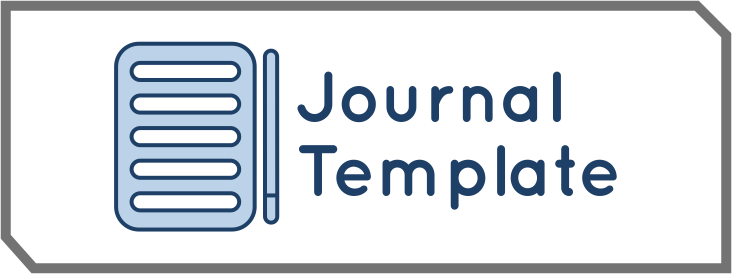Implementasi Model Pembelajaran Berdiferensiasi dalam Meningkatkan Kompetensi Bahasa Inggris Maritim Mahasiswa Perguruan Tinggi Pelayaran di Indonesia
DOI:
https://doi.org/10.61132/jupenkei.v2i1.636Keywords:
classroom action research, differentiated learning, maritime education, maritime English, student competencyAbstract
This study aims to examine the implementation of a differentiated learning model in improving maritime English language competency among maritime college students in Indonesia. The background of this study is based on the maritime world's need for graduates with good English language competency, especially in professional and technical contexts. The approach used was a mixed method, namely a combination of quantitative and qualitative methods within a classroom action research framework implemented over two learning cycles. Data were collected through English language competency tests, observations, and in-depth interviews. The results showed a significant increase in all aspects of maritime English competency. The highest increase occurred in speaking skills at 44.38%, while the lowest increase was in maritime vocabulary comprehension at 30.25%. After the implementation of the differentiated learning model, 78.33% of students were in the "Good" and "Very Good" competency categories. Although in the initial stages of implementation there were challenges in students' adaptation to learning methods that differ from conventional learning, these obstacles were successfully overcome through a project-based learning strategy. This strategy is considered the most effective because it is able to provide an authentic context and approximate the real conditions in the maritime workplace. Thus, it can be concluded that the differentiated learning model has proven effective in improving students' maritime English language competency. This study recommends the broader implementation of similar models in English language learning programs at maritime institutions.
References
Ahmmed, R. (2021). A framework for Maritime English language planning in Bangladeshi maritime education and training institutes. SN Social Sciences, 1(7), 168. https://doi.org/10.1007/s43545-021-00188-5
Anggraeny, E. F., & Bachtiar, R. Y. (2023). The role of Indonesian language in acquisition of Maritime English cadets of shipping academy. Jurnal Disastri, 5(3), 422–432.
Barata, G., Gama, S., Jorge, J., & Gonçalves, D. (2017). Studying student differentiation in gamified education: A long-term study. Computers in Human Behavior, 71, 550–585. https://doi.org/10.1016/j.chb.2016.08.049
Dharmaji, W. M. R., & Astuti, R. (2023). Improvement of student achievement through problem-based differentiated learning. Jurnal IPA & Pembelajaran IPA, 7(3), 279–288. https://doi.org/10.24815/jipi.v7i3.33145
Fan, L., Fei, J., Schriever, U., & Fan, S. (2017). The communicative competence of Chinese seafarers and their employability in the international maritime labour market. Marine Policy, 83, 137–145. https://doi.org/10.1016/j.marpol.2017.05.035
George‐Walker, L. D., & Keeffe, M. (2010). Self‐determined blended learning: A case study of blended learning design. Higher Education Research & Development, 29(1), 1–13. https://doi.org/10.1080/07294360903277380
Ismailov, M., & Chiu, T. K. (2022). Catering to inclusion and diversity with universal design for learning in asynchronous online education: A self-determination theory perspective. Frontiers in Psychology, 13, 819884. https://doi.org/10.3389/fpsyg.2022.819884
Kopnina, H. (2020). Education for the future? Critical evaluation of education for sustainable development goals. The Journal of Environmental Education, 51(4), 280–291. https://doi.org/10.1080/00958964.2019.1710444
Kurniawan, D., & Santosa, R. (2020). Analisis kebutuhan pembelajaran Bahasa Inggris untuk taruna pelayaran. Jurnal Pendidikan Bahasa, 10(2), 145–153. https://doi.org/10.12345/jpb.v10i2.2020
Landrum, T. J., & McDuffie, K. A. (2010). Learning styles in the age of differentiated instruction. Exceptionality, 18(1), 6–17. https://doi.org/10.1080/09362830903462441
Martes, L. (2015). Revision of IMO model course 3.17 Maritime English. Focus on Maritime English to auxiliary personnel. TransNav: International Journal on Marine Navigation and Safety of Sea Transportation, 9(3).
Nurjanah, F., & Astuti, R. (2024, October). E-booklet based learning media to increase motivation and learning outcomes. In Proceeding of International Conference on Biology Education, Natural Science, and Technology (pp. 69–77).
Putra, A. H., & Mulyono, H. (2022). The implementation of SMCP-based learning to improve maritime English proficiency. Maritime Education Journal, 5(1), 33–41. https://doi.org/10.54321/mej.v5i1.2022
Qorib, M. (2024). Analysis of differentiated instruction as a learning solution in student diversity in inclusive and moderate education. International Journal Reglement & Society (IJRS), 5(1), 43–55. https://doi.org/10.55357/ijrs.v5i1.452
Rohmah, Z. N., & Wijayanto, A. (2021). Maritime English as a global lingua franca: A study of cadets’ communication needs. International Journal of Applied Linguistics & English Literature, 10(4), 15–22. https://doi.org/10.7575/aiac.ijalel.v10n4p15
Simatupang, R. (2020). Indonesia sebagai negara maritim dan tantangan pembangunan berkelanjutan. Jurnal Ilmu Pemerintahan dan Pembangunan, 7(1), 25–35. https://doi.org/10.24034/jipp.v7i1.2020
Yuliana, D. (2023). Strategi pembelajaran kontekstual dalam pengajaran Bahasa Inggris maritim. Jurnal Pengajaran Bahasa dan Sastra, 18(1), 90–101. https://doi.org/10.56789/jpbs.v18i1.2023
Downloads
Published
How to Cite
Issue
Section
License
Copyright (c) 2025 Jurnal Pendidikan dan Kewarganegara Indonesia

This work is licensed under a Creative Commons Attribution-ShareAlike 4.0 International License.









